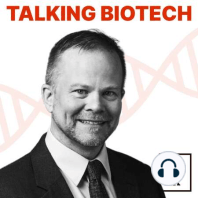50 min listen
Widespread GMOs in Nature
ratings:
Length:
37 minutes
Released:
May 29, 2021
Format:
Podcast episode
Description
One of the major objections to genetic engineering is that a DNA segment is transferred to the crop, and lands in a somewhat random location. That’s because genetic engineering largely uses Agrobacterium to perform the genetic exchange. But Agrobacterium came from nature, and there is significant evidence that DNA transfer events have been happening for thousands to millions of years. Dr. Leon Otten has been studying Agrobacterium for decades, and now is identifying recent evidence that the bacterium has littered the plant world with random DNA insertion events. It is likely that these events had important roles in plant evolution, potentially around agronomically important traits. We discuss this natural phenomenon and how it may change the dialog on genetic engineering and regulation.# COLABRATalking Biotech is brought to you by Colabra – an R&D platform that brings your lab’s world-changing research together in one shared space. Learn more at https://www.colabra.app/# TALKING BIOTECHTwitter: https://twitter.com/talkingbiotechWebsite: https://www.colabra.app/podcasts/talking-biotech/Instagram: https://www.instagram.com/colabrahqThe Talking Biotech podcast is distinct from Dr. Kevin Folta's teaching and research roles at the University of Florida. The views expressed on the show are those of Dr. Folta and his guests, and do not reflect the opinions of the university or Colabra.
Released:
May 29, 2021
Format:
Podcast episode
Titles in the series (100)
Kevin Folta — Monsanto Outreach Support, FOIA, Transparency: This week I had to address the elephant in the room. What’s up with the recent flack about Monsanto funding a science communication outreach program? What is happening with FOIA? What is the future of the Talking Biotech science communication program? by Talking Biotech with Dr. Kevin Folta
